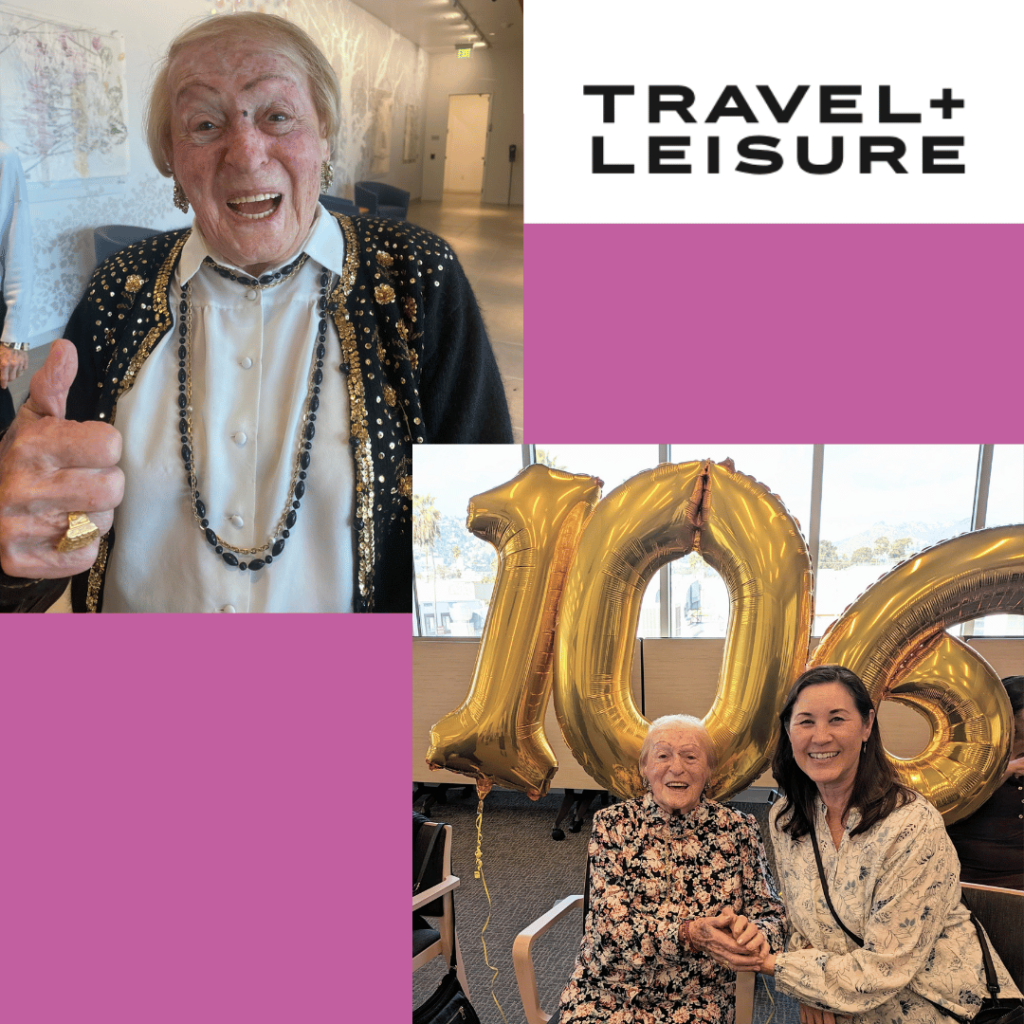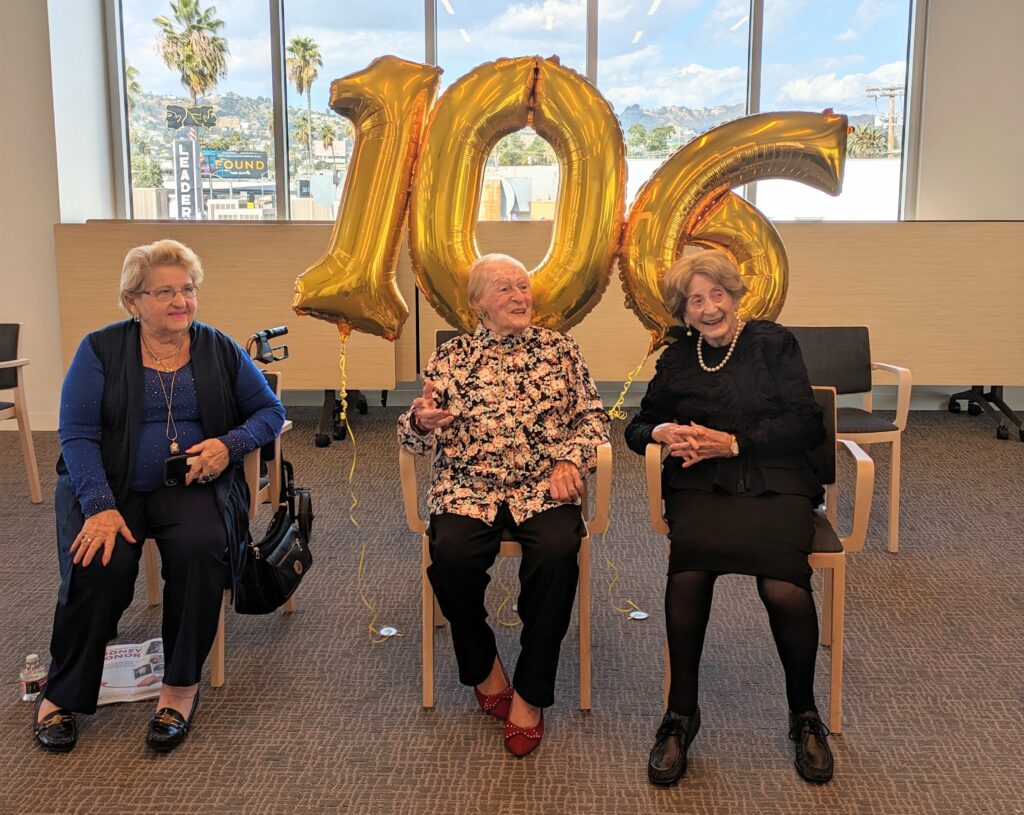The Secret to Living to 100 Years Old According to Centenarians

Just .027 percent of the U.S. population is made up of centenarians, according to the New England Centenarian Study at Boston University. It’s a rare group, indeed, but one that is growing. Just 50 years ago, the population of centenarians in the U.S. hit just .004 percent and has nearly doubled in the last 20 years alone. And that number is only expected to grow, with research from Stanford University predicting that half of all 5-year-olds will live to 100.
And while there’s plenty of science on how you can eat healthier and acquire better habits to potentially add years to your life (just look at all the data on Blue Zones around the world), sometimes, it’s about adding something more to your days that will help you reach that three-digit mark.
We spoke with a few centenarians to learn what they believe is the magic ingredient that has not only kept them going but thriving after all these years.
Risa Igelfeld, 106.5 years old
When asked exactly how old Risa is, she says 106 and a half because every little bit of life counts. As a Holocaust survivor, Igelfeld has been through more than most can imagine. But, as she says, the secret to her long life is all about “positive thinking.”
“The most important thing in my life — and I hope it will be in other people’s lives, too — is positive thinking. Chase away any negative thoughts. It’ll give you strength, and it’ll lengthen your life,” she shared, adding that when bad things happen, she gets busy “counting [her] blessings” instead.
And like other centenarians we spoke with, Igelfeld noted it’s critical to stay active for as long as you can. For her, that means spending time with the community she developed through Jewish Family Service LA and at Cafe Europa, where she meets with friends once a week to “sing, dance, and communicate with each other. It’s just wonderful.”

Roy Englert, 100 years old
In 2023, just a year before turning 100, Roy Englert, a World War II Navy veteran, competed the National Senior Games and won a gold medal in his 400-meter race. He was also selected as a Humana Game Changer, an award given to athletes who exemplify healthy aging. The thing is, Englert wasn’t always a runner. In fact, he didn’t pick it up until he was 60 years old, proving it’s never too late to try a new thing. “My thought as to why I’ve lived long is that I’ve been very active my entire life, having been a competitive runner for 40 years,” Englert shared when asked for the secret to his longevity. “My doctors all say to me whatever you’re doing, keep on doing it.'”
Mildred Kitchens, 104 years old
Mildred Kitchens never had a problem finding her purpose. She served as a social worker during World War II, the Korean War, the Vietnam War, and the Gulf War in Texas. She was also a high school teacher during segregation from 1962 to 1970. As a social worker, she helped start the first clinic in Texas for women to receive birth control for free. She’s proud of her career and how it helped change the lives of women across the nation. “Know what you want, find a way to get it, and do not give up,” she said. It’s as simple as that. Oh, and “try everything,” she added.
Doris Zahorsky, 100 years old
Doris Zahorsky shared a similar sentiment to Wilson, noting her secret to not just a long life but a happy one, too, is “to keep busy.” She added, “Stay active and keep moving.” Zahorsky also has some advice for the next generation of hopeful centenarians: “Always try something new. Don’t be afraid because it may be something you’re interested in. Don’t let others try and tell you that you can’t. I was told I should be a secretary, but as an accountant, I knew more than any man in the office. That’s something I’m proud of.”
Armin Mruck, 99 years old
Dr. Armin Mruck, who holds a PhD in modern European history, spent most of his life dedicated to academia, acting as a professor at New York University and Morgan State University, as well as a tenured professor at Towson University. And while his work in the classroom was certainly important, it’s what he did while establishing an exchange program that has been the most impactful and important part of his longevity.
“It’s about building bridges for your community and your family. Those bridges are important,” he shared with T+L. Mruck added that this has been his lifelong passion — to connect people, teach people, and help everyone learn something new about the world around us. “You should be passionate about what you’re doing,” he said. “You have to have the will to live and have an active life.” But as Mruck also noted, “Life doesn’t have to be good all the time. You have to be strong enough to go over the hurdles.”